Dell’s Bill Scannell: Our Channel Strategy Hasn’t Changed
Dell Technologies President of Global Sales Bill Scannell told CRN there has been no change in the company’s channel strategy and that conflicts between partners and its direct sales team are few and far between
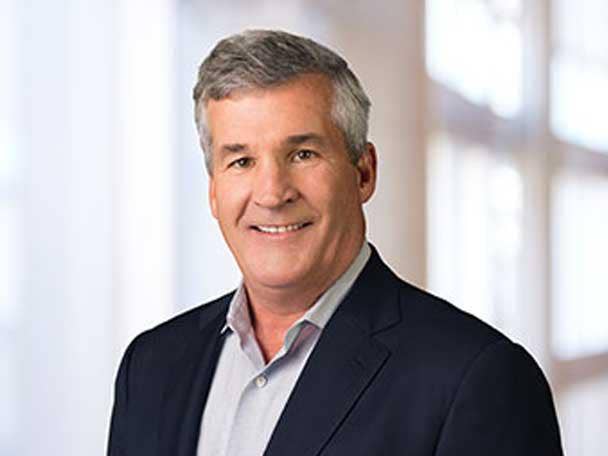
Dell’s Longtime Sales Leader Bill Scannell On The Record
Dell Technologies President of Global Sales Bill Scannell said there has been no changes to the company’s go-to-market strategy this year and that conflicts—Dell’s direct salesforce taking existing partner accounts direct or improperly causing partners to be denied deal registration—are far and few between.
“Is it happening? I believe it’s happening. I don’t think these folks are lying to you. I’m sure there are isolated examples. We do hundreds of thousands of transactions a quarter. So are there some outliers where it didn’t go the way was supposed to? I’m sure there are. Bring it to me. Bring it to our channel organization. Let us address it,” said Scannell, a 35-year Dell EMC veteran who took over the combined Dell, EMC and channel sales organization in 2019. “We have disciplinary actions in place as part of the rules of engagement that will let the sales teams know that that’s not the way we’re going to do business. It’s not acceptable. It’s not part of our culture at Dell, and we won’t tolerate it. But I’m sure they’re outliers. If it was the way we operated consistently, the channel would not have grown 34 percent last quarter.”
Multiple high-level Dell solution providers told CRN that Dell’s direct salesforce is now not only competing heavily against them for Client Solutions Group (CSG) deals and opportunities, as reported by CRN in September, but for Dell storage, server, hyperconverged infrastructure and networking deals as well.
Scannell, however, said there’s been no direct or channel sales strategy change in 2021, with strong revenue growth for both the channel and Dell direct.
“Let me let me start off by saying, our strategy hasn’t changed. There have been a lot of questions around, ‘Have we changed our strategy?’ Our strategy is to grow faster than the market and through all routes to market—whether it’s directly with our customers, or through our partners, or through our alliance partners,” said Scannell. “That’s across the entire portfolio.”
In an interview with CRN, Scannell answered questions on Dell’s go-to-market strategy including rules and regulations for partner deal registration, compensation plans, channel rebates and the Dell Apex as-a-service offerings.
“I always say, ‘If you’re walking down the street, you see a bag of money, what do you do? You pick it up.’ There’s a bag of money out there for Dell and our sellers, and for our channel partners to go and get and to win,” said Scannell. “We’re winning in the market. We’re growing our share. We’re exceeding our customers’ expectations. And quite frankly, generally speaking, 99 percent of our channel partners will say they’re winning with Dell, and they love working with Dell. It’s always that one percent, and I recognize that that’s part of life.”
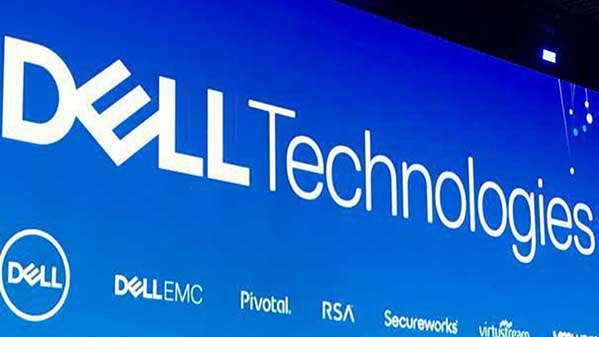
Multiple partners, Titanium and others, have said when they tried to put in deal registration, it gets rejected. Then the rep calls the channel partner and gets information from the partner, then goes behind the partner’s back and tries to take the deal direct. What’s Dell’s deal reg strategy and why are we hearing from partners that these issues are happening?
My email is: [email protected]. If that happens, I want to hear about it. We take deal registration and protecting our partners’ opportunities very seriously. It’s paramount to ensuring trust and strong long-term relationships. And that’s what we enjoy with our partner community. Our most successful partners register early, and they register often, because they know they’re protected. Deal registrations continues to grow year over year. In [fiscal] Q3, the deal registrations were up nine percent over Q3 of last year. So we’re accepting more deal registrations, not less.
Look, here’s the way it works. There are some times when a partner wants to register a deal, and it gets rejected, and there’s a handful of reasons why that happens. Let me be very clear on what they are: one is, our core sellers are already actively working that account. And I’ve been clear for 36 years that I’ve been working with our channel partners, that if I’m in an account and we’re selling directly to that account, we have a direct relationship, there is no value for me to bring in a partner in the middle of that—unless the customer wants to see that. We ask our partners to go find new opportunities, go take share away from our competitors. And we’ll always accept those. But if we’re in the account, we don’t need help.
I mean, I have accounts that are doing $300 [million], $400 [million], $500 [million], $600 million a year with Dell Technologies, we’re doing just fine there. We’ve asked our channel partners go focus on other opportunities. Likewise, we have customers doing $300 [million], $400 [million], $500 [million], $600 million a year with our partners. So we’re going through our partners for those opportunities. So we don’t differentiate from size of the deal, it’s, ‘Have we been doing business directly with the customer? Do we have a direct relationship?’ If so, we want to maintain that. If we’ve been going through the partners on those opportunities, we want to continue to maintain that relationship. I can’t have a partner bring me into an opportunity and then cut them off the next year. They’ll never bring me into another opportunity. That’s why we take this so seriously and why I want to know if there are violations.
The second reason we wouldn’t accept [deal reg] is if the deal is already registered with another partner. This happens all the time. A partner will say, ‘Hey I want to register this opportunity. I’ve got a relationship with ‘Mary’ or ‘Joe’ at this level.’ We say, ‘Sorry, someone else has already registered that opportunity.’ And we’re very clear about that in our rules of engagement.

Can you explain what Dell’s rules and regulations are on deal registration?
If we’re already working it, we’re not going to accept deal reg. If another partner is working it, we’re not going to take a deal reg. If it’s not available because it’s a public bid, we can’t take the deal reg. If we have a contract that we have to bid directly with the customer—there are certain contracts that say, ‘We are not going to go through a reseller— [that’s another reason]. So there are a handful of reasons why if it doesn’t meet those criteria, that we won’t accept the deal registration. But once we accept that deal registration, that is the partner of record, and we will not violate that.
Am I saying, ‘We’re perfect and it never happens,’ [that] what you described a moment ago has never happened? I’m sure it has. I know we’ve taken disciplinary actions [against violators]. First and foremost, we don’t pay reps or any of the management team if they violate a rule of engagement. And a second offense can lead to significant penalties, including termination.
So if you’re a rep at Dell, you know these rules, and you know you shouldn’t violate them. And if it happens, contact me at [email protected]. And I know [Dell President of North America sales] John Byrne (pictured) would like to know. I know [President of International Markets] Angus [Hegarty] would like to know. I know [Senior Vice President of North American Channel Sales] Gregg [Ambulos], [Global channel chief] Rola [Dagher]—we all want to know about this. We take this very, very seriously.

Has Dell’s compensation plan to reward your sellers to go direct versus indirect on the Infrastructure Solutions Group (ISG) side changed over the last 12 months?
Yes, a little bit. It actually got better for the channel partners. So we don’t pay Dell sellers more or less in ISG if it goes through the channel or if we have a direct relationship with the customers. But we do give the channel partners incentives for new business, new logos. There’s an NBI [New Business Incentive that’s] part of their compensation, part of their objectives. So when they bring new logos to Dell in ISG, they make more money. And we don’t even have that for our direct teams. So they’re more advantaged than disadvantaged.
Look, let me let me start off by saying our strategy hasn’t changed. There are a lot of questions around, ‘Have we changed our strategy?’ Our strategy is to grow faster than the market and through all routes to market—whether it’s directly with our customers, or through our partners, or through our alliance partners. That’s across the entire portfolio. So we are open for business. And it’s working really, really well.
You just have to look at our Q3 results—it was a record quarter. Then when you break it down, and you look at the business that we saw through the channel: in Q1, Dell’s overall business [growth] was 12 percent, our business through the channel grew 14 percent. I’m not a mathematician, but if the overall business is 12 percent [up] and 14 percent up through the channel: our direct business is less than 12 [percent]. In Q2, we grew 15 percent as a company, our channel business grew 29 percent. In Q3, we grew 21 percent, our channel grew 34 percent—that’s 60 percent faster than our growth.
Then when I look at by product line, in North America our Clients Solutions Group through the partners grew 35 percent. Our server business [through the partners] grew 48 percent and our storage grew 5 percent. So in all cases, the channel is growing faster than Dell Technologies. And that has been the trend since Dell and EMC came together. So that’s why I kind of scratched my head and I get a little frustrated when I read these articles.
Are there a couple of partners that have an issue? I’m sure they do. And as I’ve said to them on stage at our FRS [Field Reediness event] and at the Partner Advisory boards, call us. I’m [email protected]—publish that. If people have an issue, please call me. Our partners are our most important assets. It’s our route to markets. It’s why we’re growing so well.
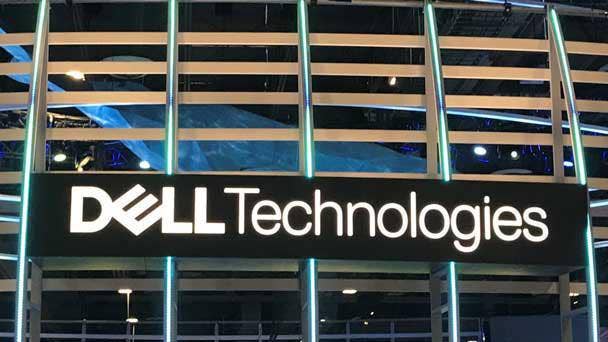
What’s Dell’s go-to-market strategy?
We have an omni-channel go-to-market where we have some direct relationships with our customers. Oftentimes, it’s because we’ve had that for five, 10, 20, 30 years, if customers want that. In some cases, it’s a new customer that we’re winning the business at. And we’ve done that directly and the customers want to work directly with Dell. But in more than half the cases [it goes through the channel] because more than half of our revenue, well over 50 percent of our revenue is going through our partners. So go back to Dell’s original days as the PC company—it was 100 percent direct to our customers. [Dell Chairman and CEO] Michael [Dell] wrote a book about it. And now over half of our business is going through partners.
If you just look at the math for what we did in Q1, Q2 and Q3: we did $24.5 billion in Q1; We did $26.1 billion in Q2. Then based on what we announced last week in Q3, and what we’re going to do in Q4: we’re roughly a $100 billion company with over 50 percent of that going through the channel partner. So that’s over $50 billion. I don’t want to get exact on what percentage goes to partners, but it’s well over 50 percent. So there’s over $50 billion, that’s much bigger than a lot of companies we’re talking about here.
You said the compensation plans are now skewed more towards channel. Can you talk about that because you said it changed a little?
You asked, ‘Do we pay more for ISG direct versus the channel?’ What I said is, ‘No, we pay the same, but we do have a NBI [new business incentive] for channel partners who bring new accounts to us.’ We want to grow our share. If you look across our portfolio: in the client business, we have roughly 20 percent share. In the storage business, we have roughly 30 percent share. That means in the client business, it’s 80 percent that we don’t have. In ISG, there is 70 percent we don’t have. This is a trillion-dollar market. So there’s plenty of upside.
We want to encourage partners to go get more of that upside and bring new accounts to us. When they find an opportunity, they register that opportunity, it’s their opportunity—they are now the partner of a record. And we will work with them for as long as they want to work with us.
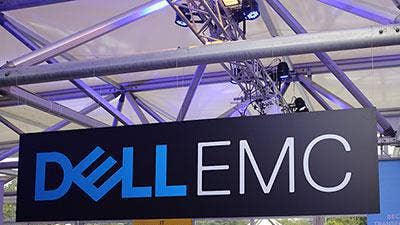
Right after Dell’s acquisition of EMC closed, Dell was looking to implement a ‘line of business incumbency’ or this ‘hard deck’ that stipulated under a certain revenue threshold, a sale would automatically be partner-led. Is that business line of incumbency or a hard deck still in place?
I can talk as much as you want about this. I put the hard deck in place for EMC. That was my decision back at the time. We didn’t have a salesforce that went down market. We were focused mainly in the enterprise. So we created a hard deck and said, ‘Anything below these enterprise accounts, we will work through the channel partners.’ There were exceptions to that as well because some customers didn’t want to go through a channel partner. There were very few exceptions, but there were some exceptions.
So we did have a hard deck at EMC. Dell has never had a hard deck. We use deal registration to protect partners. And again, we take that very seriously. So we still do have the partner of record, that was what we used to call ‘line of business incumbency’. So by line of business, if someone sold our ISG business into an account, they were the partner of record or they had the incumbency on that piece of the business for that particular account.
Likewise, on CSG, if there was a partner that sold our CSG portfolio into an account, they had line of business incumbency on that—they were the partner of record. So that still exist today. If someone has brought us to the dance, we’re going to leave the dance with them. Again, I’m not saying it’s perfect, that it hasn’t been violated in the past. We take it very seriously. We take action when that happens.

Partners say Dell sales are up in 2021, but their Dell profitability is down year over year. Partners said rebate dollars from Dell are lower across the board compared to two years ago. Has Dell lowered the overall rebate dollars you’re paying to partners across the board for any reason?
On the contrary. This year, at the end of Q3, we are actually paying out more than we did in—the year that people talk about and I’ll address in a minute is 2019—but we paid out more in 2018 than we did in 2017. We paid out more in 2019 than we did in 2018. And if I look at from 2020 to 2021, we’ve paid out more and we’re paying out more than this year. So we’re paying out at a consistent rate.
Now, how we pay out is different. We change our program from time to time. We say, ‘These are the areas we want you to focus on.’ So right now, there’s a big incentive to go after storage. And where the storage growth is right now is in the mid-range. So we have rebates that are geared towards selling more of our mid-range storage.
So no, I would tell you that we’re paying out more than ever before. Q3 is a record quarter. Our partners in Q1 earned 31 percent more in Q1 of this year than Q1 of last year. In Q2, they earned 20 percent more this year than Q2 of last year. In Q3, they earned 34 percent more than they did in Q3 of last year. So we’re paying out more.

What happened in 2019 in terms of partner rebates?
Now in full transparency, and I’ve had this conversation with our partner advisory board, I said, ‘Look, in 2019, we paid out more than we anticipated, more than we had budgeted. We had an operational issue within our channel business, and we made a mistake. We paid out a lot more than we planned on.’ Now we could have gone back and said, ‘Hey, we made a mistake. We’re going to claw that back.’ We didn’t. But I was very clear to say, ‘Look, we overpaid. That’s on us. Congratulations, you made a lot more money this year.’
But if I compare what we paid out in 2020 and 2021, versus 2019, even with that overpayment, we paid out more in 2020 and 2021. So the facts are your friends. I mean, I have the facts. I know the data. I go and I look at it because again, the last [column] CRN wrote last [month] , I didn’t really like it because it wasn’t factual.
I know there are going to be examples of someone within a partner organization who is not happy, and they complain up the chain. We want to take these things head on. We want to hear what the complaints are. My mother told me when I was a little kid, there are two sides to every story. So the more we put these on the table and discuss and talk about them, the more we can address them. Like I said earlier, we’re not perfect. We will have people in the field do the wrong thing from time to time.
Channel partners who have worked with me for 36 years know that I tell it the way it is. These people come to me when they have a problem, I resolve their problems. They come to me and say, ‘Hey, we want to grow our business. Can you help?’ We help them grow their business. That attitude runs through and through at Dell Technologies from my boss, Michael Dell, through the executive leadership team and all the way down.
We really appreciate, we respect, and we need our channel partners. They’re growing faster than we are as a company right now. We should be dancing in the streets. And all you hear about is a couple of incidences where it didn’t go someone’s way. I’d rather hear, instead of anonymously through CRN, I’d rather them call us up and let [us] address it.

Well, that’s been the problem. Partners told CRN they tried to reach out to Dell channel leaders, but they just either don’t hear back or nothing gets fixed. Could there be any type of miscommunication from the top? Because partners say Dell’s message at the top is good, but something happens at the street level or in the sales trenches, where Dell’s message is not the same as what their hearing from you. Is there any management direction change?
It’s very clear, the management direction. It is: we want to grow all routes to market. Our channel partners are growing faster than we are. Now I scratch my head and say, ‘If all we do at Dell Technologies is sell Dell products, how is it that channel partners are growing fast than us?’ I’m challenging my team to go out and find new opportunities. Again, there’s a trillion dollars of opportunity out there. We have 80 percent [market share] available to us in the CSG business and over 70 percent [market share available] in ISG.
I always say, ‘If you’re walking down the street, you see a bag of money, what do you do?’ You pick it up. There’s a bag of money out there for Dell and our sellers, and for our channel partners to go and get and to win. Our strategy is resonating with our customers. Look at our results versus all of our competitors. We’re winning in the market. We’re growing our share. We’re exceeding our customers’ expectations. And quite frankly, generally speaking, 99 percent of our channel partners will say they’re winning with Dell and they love working with Dell. It’s always that one percent, and I recognize that that’s part of life. But contact me at [email protected] We want to hear [about it].
You said 99 percent ‘love’ working with Dell. We’ve spoken to several partners, including Titanium partners, who are telling us that Dell direct sales people are really going behind their backs to sabotage deals. Do you think that it’s really just one percent of Dell partners with these issues?
I don’t know. I threw out one percent out as an illustration. I don’t know what percentage it is. I see the numbers. I see that the channel business grew 34 percent last quarter, and the company’s business grew 21 percent. So the channel partners are growing much faster than we are.
There is no disincentive for our teams to work with the channel. It’s leveraged. … We’ve been working with these folks a long time. We have trusted relationships. There’s noise. There’s always noise around things that aren’t going perfect. We want to know about those [instances]. Let’s sit down and talk about it. I’ll answer any questions you throw at me. They might not always like the answer, but I’ll answer it honestly and tell them where we stand on a particular issue.

Does Dell ever want to be 100 percent channel?
Do we want to do 100 percent of our business through the channel? No, we have a 27,000-person sales organization. We want them waking up every day trying to win new business as well, just like with the channel partners to win new business.
I won’t be happy with 20 [percent] to 30 [percent] market share. We want over 50 percent. The market is ripe. We’re No. 1 in server. We’re No. 1 in commercial PCs. We’re No. 1 in storage. We’re No. 1 in backup. We’re No. 1 in hyperconverged infrastructure. We’re No. 1 in software-defined. In every category we played in, we’re No. 1. That’s why our partners are winning.
There’s over $50 billion of Dell revenue flowing through our channel partners—that’s bigger than [our competitors]. Fifty billion dollars of Dell revenues going through our partners, that’s bigger than any one of [our competitors].
Does that $50 billion of channel sales include post-VMware spin off numbers?
We have not talked about Q4 [post-VMware spin-off]. All of the numbers that I’ve talked about through this year are [fiscal] Q1, Q2, and Q3, we’re not going to talk about Q4. I mean, we’re still reselling VMware as part of our strategic partnership and go-to-market with VMware. So I don’t expect a material change in any of those numbers.

Are you looking to do business with fewer partners in the future? Are you looking to reduce the number of partners to focus on bigger partners or with a select group of Titanium partners?
We want to work with any and every channel partner out there that wants to work with Dell to bring value. Again, [my contact is] [email protected]. Let us know. We have a wonderful relationship with our Titanium Black, Titanium—all of our medal partners.
But there’s a lot of partners that don’t even make the radar, they sell $10,000 worth of Dell product per year. They’re not a medal partner. We want those too. We’re open for business. We’re winning in the market. We want more and more channel partners siding with Dell in helping to deliver great outcomes for our mutual customers.
So no, we’re not trying to trim down [the channel], just the opposite. We want to grow the channel business faster than we’re growing today. We’re not looking to slow it down. We want it to grow faster. You’ll hear that from Michael Dell. You’ll hear that from [Dell Technologies Vice Chairman] Jeff Clarke. You’ll hear from me. You’ll hear from John Byrne, Angus, Rola, Diego [Majdalani, president of channels for international markets], Gregg. We as a company wants to grow.
We want to take share where we have a direct relationship with our customers, and through the channel partner. It’s not ‘either/or.’ It’s both. This is the power of ‘and;’ this is one-plus-one equals something greater than three. So any channel partners who are selling someone else’s products today, and you want to come be part of something special, talk to us. We want more strategic partners.

Going back to Dell’s compensation plan. Partners say Dell changed its comp plan to go direct versus indirect and say that’s what is driving this behavior they describe. Can you double down on that because that’s an important issue?
No, [we haven’t changed our sellers’ compensation]. We want to sell more servers—I mean, we’re winning in the market. Look at the share we’re taking in storage and in server. The numbers we posted in Q1 and Q2 and Q3, we are winning in the market and our partners are growing faster than us. We want to throw coal on that so they grow even faster.
There is no messaging within Dell from Michael, all the way down to the reps in the street, that say, ‘We want to slow down the growth of our channel partners.’ There is no difference in compensation whether we sell server or storage direct to our customers or through our value-added partners, with the exception that we pay a little more to the partners because we have that new business incentive.
The message from you at the top is, ‘We’re all-in for the channel.’ But that’s not what we’re hearing from partners in the field. Is Dell’s message from the top being watered down by the time it hits the street? Have there been repercussions for Dell sellers when they try to take deals from channel partners, and has there been an increase in those cases? For example, one partner said he was sitting at the sales table with a longtime customer, Dell was at the meeting as well, and he said Dell began pitching Apex directly in front of him before partners could even pitch Apex. You’re not hearing anything like that?
Let’s talk about that. Apex is our new offering. We started off with storage, which is storage-as-a-service. This is the future of Dell. We’re going to offer everything we do as-a-service. And just like some of my competitors when they first came out with their as-a-service offering, they didn’t have the ability to transact that through the channel partner—it had to be direct, and then they gave a back-end bonus. I will say that we have the same program, only our back-end bonus is much more lucrative than anything we do or anything any of our partners have ever [had]. It’s up to 30 percent.
So in my opinion, that probably wasn’t the best pre-sales call planning there. Because we should never surprise a channel partner in front of a customer. But we should offer the customers what they want. I wasn’t in that sales call. If the customer said, ‘Hey, we’re looking at one of your competitors because they can offer us something as a service,’ I would jump and say, ‘We can as well. My partner and I, we can do that for you as well. And let’s talk about how we do that.’
But very quickly, we’re going to make sure that we can transact Apex offerings through our channel partners. So again, I wouldn’t say that was malicious. I wasn’t on that call, but it could have probably been better proper planning in advance with the channel partner, a pre-call plan. Or if it came up from the customers, ‘Hey, I want to look at this as-a-service [options]. Do you have these?’ I just had a customer right before my call with you and they said, ‘Hey, we want to buy everything as a service. Can you do that?’ And we said, ‘Yes, we can.’
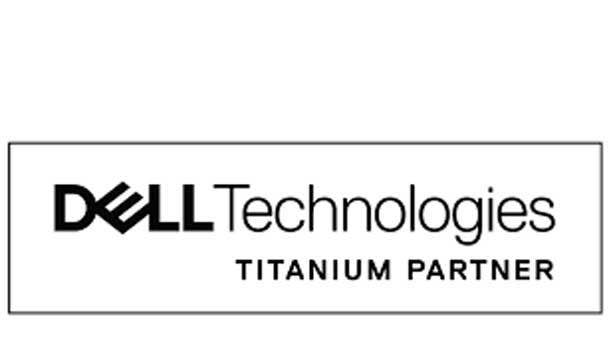
Some Dell partners who are the leaders of these Titanium partners are very angry at Dell direct for the behaviors they’re seeing in the field, and they say if they go to upper management, there’s no person to escalate it to. They don’t know what to do. What’s your message to them?
I appreciate them coming to you. And I appreciate you coming to me, because I can’t address it if we don’t know about it. Is it happening? I believe it’s happening. I don’t think these folks are lying to you. I’m sure there are isolated examples. We do hundreds of thousands of transactions a quarter. So are there some outliers where it didn’t go the way was supposed to? I’m sure there are. Bring it to me. Bring it to our channel organization. Let us address it.
We have disciplinary actions in place, as part of the rules of engagement, that will let the sales teams know that that’s not the way we’re going to do business. It’s not acceptable. It’s not part of our culture at Dell, and we won’t tolerate it. But I’m sure there are outliers. If it was the way we operated consistently, the channel would not have grown 34 percent last quarter. And they would not be doing over $50 billion a year of our products and offerings. And we want that to grow. If that $50 billion turned into $150 billion, life is good.
I want to make sure that we are crystal clear with one another: Dell needs the channel. We respect the channel, and we respect the rules of engagement. We are very disciplined with our sales teams on these rules of engagement. And if they get violated, I want to know about it, and we’ll fix it.
Bill anything else you’d like to add?
I would like you to publish that I want to just encourage the channel partners who can attest to how great things are on a regular basis, without the one-offs, to send a note to [email protected] at CRN and let him know that you’ve been partnered with Dell Technologies for 10, 20, 30 years and the relationship is very good. Because it is.
Many of the channel partners used to work for me. They’re friends. We get together with families, we get together and have a beer or we get together for a cup of coffee. We have got a trusted relationship, and I want to make sure that continues forever.